
Union Township
Ringgold County
Iowa

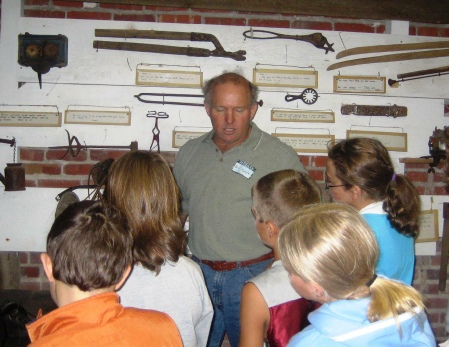
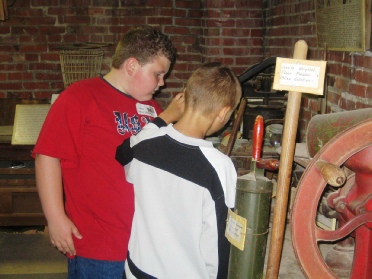
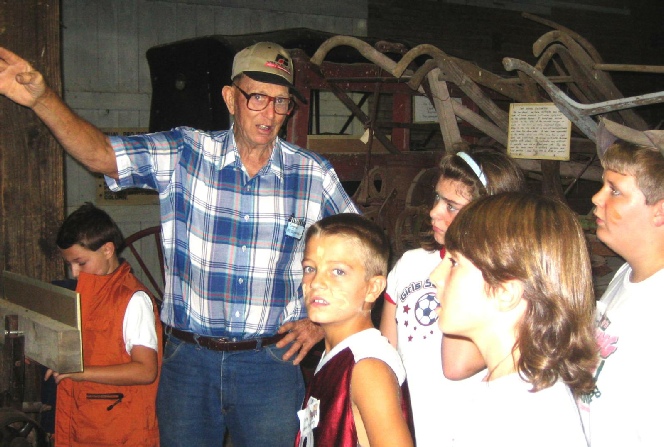
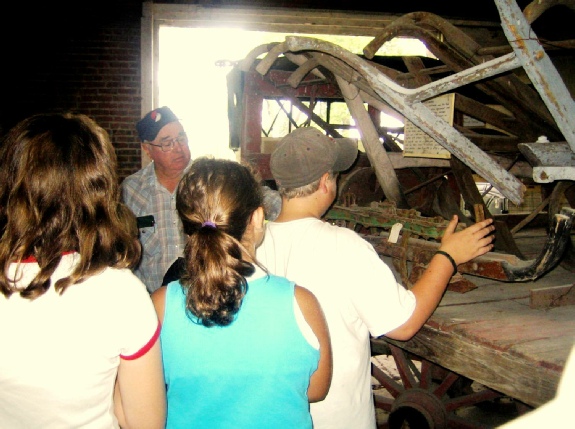
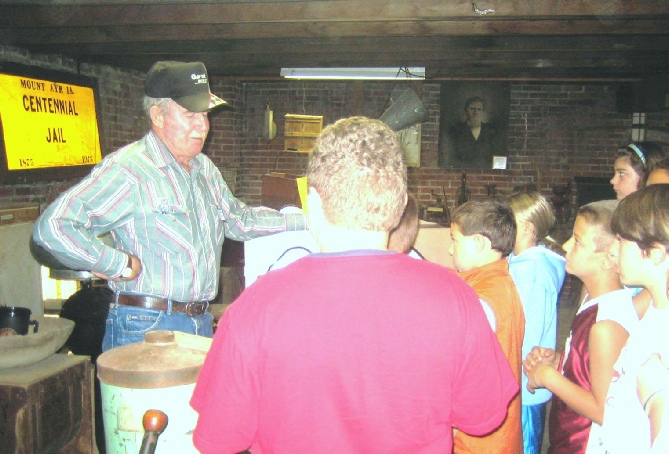
Bill Hynek
in small tool room
Gene McAlexander telling about the rare Huggins’ flag
John Overholtzer
talking about milking equipment
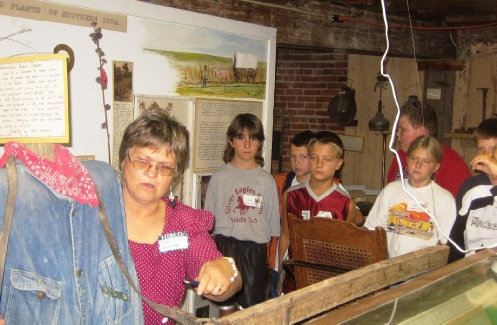
Reta Freihage
explaining the hand held grass seeder
The building has had many owners and uses over the years. Finally, in 1971, Mr. Russell
Cheers, prominent Union County farmer, was the owner. He presented it to the Ringgold
County Historical Society for use as a museum for the preservation and display of
horse drawn and early tractor farming equipment. The roof, windows and doors were
in bad condition, even though the building was structurally sound. A financial campaign
of gifts and memorials was held raising sufficient funds to renovate the structure.
On May 6, 1973, the building was rededicated to its new purpose -
It was the Spring of 1914 -
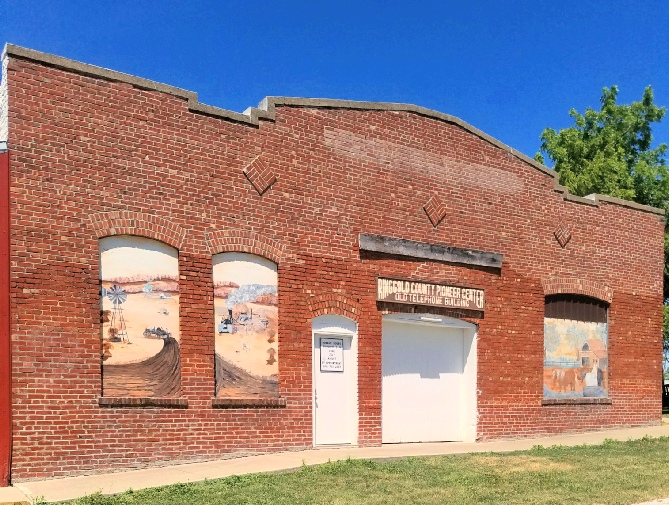
John Campbell describing the moll board plows
| Ellston Businesses |
| Area Businesses |
| Restaurants |
| Ellston City Hall |
| Union Township |
| Union Township Minutes |
| American Legion |
| Ellston Library |
| Union Township Fire Fighters |
| United Methodist Church |
| Philanthropic Organizations |
| Blackmore CornerAntique Farm Show |
| Christmas on Main |
| Ellston Museum Day |
| Grand River Rodeo |
| June Jamboree |
| July 4th, Celebrate at the Lake |
| Tingley Halloween |
| Dirt Biking & 4-Wheeling |
| Ellston City Park |
| Grand River Water Trail |
| Sand Creek Wildlife Refuge |
| Sun Valley Golf Course |
| Sun Valley Lake |
| Ellston Cemetery |
| Pumptown Cemetery |
| School & Alumni |
| Dragoon Trace |
| Dragoon Trace Brochur |
| Cornwall Pioneer Home |
| Hazel Glen Rural School |
| Old Telephone Factory |